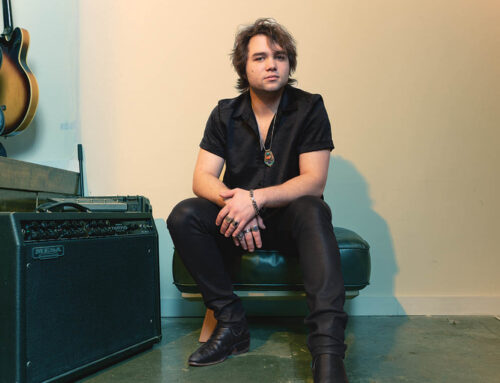With the constancy of 24-hour news networks, images of the war in Iraq are indelibly stamped on our minds. Humvees careening across desert sand. Bombs exploding amid crowded marketplaces. Children lining the streets, hands outstretched for soldiers to fill them with candy. Women draped in burkas weeping for their dead. Families on airstrips clutching their just-returned relatives for dear life.
With more than three years of combat behind us, it’s become easy enough for most of us to change the channel when these images flash across the screen. But for some in our neighborhood, it’s not that simple. They don’t associate Iraq with unnamed soldiers on television – for them, the war evokes faces of sons and daughters, husbands and wives.
Some of our neighbors are still fighting. Others have already returned. Still others are headed back after being called up a second, even third time.
“We’ve got to keep this in the front of people’s minds,” one mother pleads. “It’s there – it’s not going away yet.”
The next time someone mentions Iraq, we hope these faces come to mind.
STAFF SGT. JOHN MOSQUEDA, ARMY
AGE: 59
TAIL GUNNER
It was 1966, and the United States was fighting North Vietnam. Despite being drafted into the infantry to support that effort, Mosqueda ended up in Korea patrolling the Demilitarized Zone. Fast-forward 35 years when, as a Texas National Guard reservist, he was called up after Sept. 11. Two years later he found himself crisscrossing Baghdad to visit some of the insurgency’s most dangerous leaders. Mosqueda was part of the personal security detail for Lt. Col. Welch, whose mission was to talk to the enemy to negotiate peace, or at least ceasefire arguments. “Everywhere he went, we were there making sure he got there alive and left alive.” For Mosqueda that meant cradling a 240 Bravo machine gun on the last Humvee in the detail’s convoy. “We were always fully loaded and alert,” he recalls. “We never knew if it was going to be set up. My job was to cover the rear.” He says the security detail had issues every day – bullets whizzing by and cars blowing up – but their job was not to attack and destroy, but to protect Lt. Col. Welch. “When we hear gunshots, we just hunkered down and kept going.” He’s back home now, walking the halls of W.T. White High School as its assistant principal. As July 4 approaches, Mosqueda suggests that we celebrate the freedoms we enjoy everyday. “I’ve seen people with nothing, and I’ve seen the freedom we have here. Over there, you go out after dark, and you’re dead.”
BRITTNEY DICKEY, AIR FORCE ENLISTEE
AGE: 18
INTELLIGENCE
Think of a soldier, and you probably picture a rough, rugged person who’s fierce and fearless. Now meet Brittney Dickey. Wearing a sundress and toting a trendy bag, she’s the image of girlish sweetness. She’s certainly not your average soldier, and that’s what worries her mother. “You have got to be tough in the military, or else it will break you,” she says. And her mother should know. She served eight years in the army during Desert Storm. “Brittney is a very kind and gentle girl, and I didn’t want the military or combat to touch that part of her, but it will,” she says. “Serving in the military and seeing combat changes you forever.” Brittney’s stepfather also has reservations about her enlisting, and after serving eight years as a Marine, he’s also speaking from experience. “I’m hesitant with the war going on,” he says. But more than anything, her parents say they are proud of her and stand beside her decision. Her mom says after serving as a soldier and being a military wife, she understands the hardships her family will have to endure. “The spouses and parents of soldiers make the ultimate sacrifice, because they’re not the ones who sign up to serve, but they’re directly affected by war whether they want to be or not,” she says. “They’re constantly having to wonder if they’re going to have a sibling, child or spouse come home to them.” While Dickey says she knows she can never fully prepare for what she might encounter, she believes she can handle it. “Going to Iraq wouldn’t be a totally bad thing for me, because it’s something I want to see firsthand,” Dickey says. “I want to see firsthand what these people are doing for our country.”
MSTR. SGT. BRADLEY K. GRIMMETT, AIR FORCE
AGE: 37
FORCE PROTECTION
Grimmett says it’s not that bad in Kuwait, where his job is to assess the vulnerabilities of the installations there in order to mitigate the damage from potential terrorist attacks. “It’s a little hot. It got up to 117 today. They say it’s going to get up to 130 pretty soon … I lived in Texas almost all my life, and it’s nothing like this heat. I wouldn’t recommend Kuwait for your next vacation.” This is his second deployment to the country. The first was right after Sept. 11, when he was stationed with his regular 13-man unit. This time around, they’ve been split up. Now he commands 20 troops tasked with escorting third-country nationals to and from the installation. Grimmet says he’ll be coming home in mid-August. “This is a totally new thing for me, and it’s been very positive. I’m serving with a good bunch of guys. But I’m ready to come home.” As for the pomp and circumstance that typically accompanies the Fourth of July holiday, Grimmett can take it or leave it. “I’m kind of funny about that. My wife and family are real proud of what I do. But I’ve been doing it for so long it’s just automatic. I don’t really like all the hoopla. My wife tries to bring attention to me, and I try to avoid it.”






